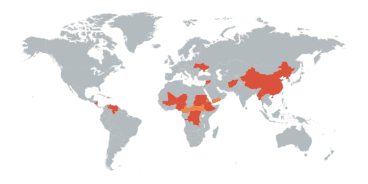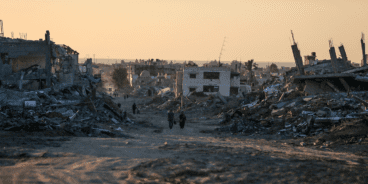
Statement on the situation in the Central African Republic, December 2013
This Thursday, 5 December 2013, members of the United Nations Security Council (UNSC) have a unique opportunity to uphold their Responsibility to Protect (R2P) civilians from mass atrocity crimes when the Council votes on a resolution on the situation in the Central African Republic (CAR).
CAR has descended into chaos since a March 2013 coup by the Séléka rebel alliance toppled the former government. The predominantly Muslim Séléka forces have committed grave violations of human rights and humanitarian law, and have increasingly targeted the country’s Christian population. Local militias, known as ‘anti-balaka’ (anti- machete), have formed in response and have committed reprisals against Muslim communities.
The situation has reached a dangerous tipping-point, with armed groups proliferating and inter-communal violence increasing, particularly in the country’s northwest. Over 400,000 civilians have been internally displaced and more than 65,000 have sought refuge in neighboring countries. Civilians are facing a vicious cycle of massacre and counter- massacre. A failure to confront the rapidly deteriorating situation could result in large-scale mass atrocity crimes and further mass displacement.
In keeping with the 2005 commitment by all states to uphold their Responsibility to Protect, members of the UNSC should support a strong resolution that authorizes robust measures to protect civilians. The resolution should grant the African Union (AU)-led International Support Mission in CAR (MISCA) and French forces a mandate to restore security and halt attacks against civilians. The anticipated deployment of French forces has reportedly already led to ex-Séléka elements fleeing Bangui, indicating that a credible intervention could have a significant positive impact.
A combined AU and French operation should be an interim step towards the expeditious deployment of a UN peacekeeping operation in CAR. The existing mission in CAR, MICOPAX, which will become the AU-led MISCA on 19 December, has been unable to protect populations at risk. The 15 November report of the UN Secretary-General also noted that MISCA will face serious logistical, operational and strategic challenges even if increased bilateral and multilateral support is provided. French forces will act as critical enablers for MISCA, but are reportedly only to be deployed for a period of six months.
These constraints make it clear that a more substantial UN presence is desperately needed. The UNSC should request that the Secretary-General immediately begin preparations for a rapid transition of MISCA into a robust UN peacekeeping operation with the mandate and resources to protect civilians and ensure ongoing stability.
“The severity of the crisis in CAR requires decisive action by the UN Security Council to uphold its responsibility to protect civilians,” said Dr. Simon Adams, Executive Director of the Global Centre for the Responsibility to Protect. “The UN Security Council has a unique opportunity to prevent CAR from joining the tragic list of situations where indifference or frugality trumped the needs of people facing the imminent threat of mass atrocity crimes.”
Related Content


